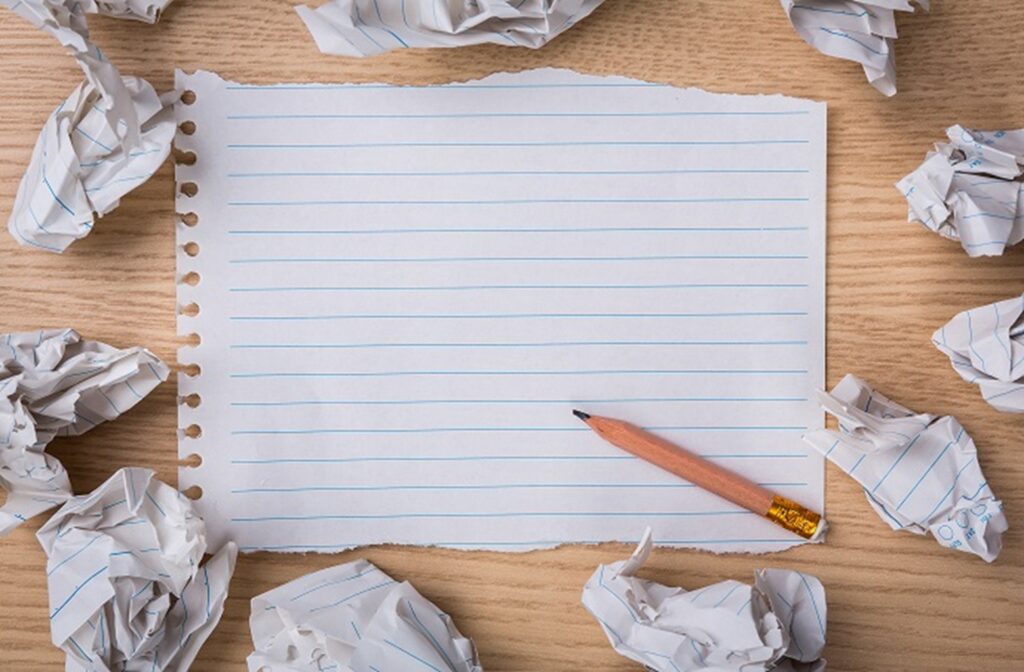5 Ways to Quickly Improve Your Writing

If you want to improve your writing, then by far the best way to do it is to just write, and to do it a lot. There’s no magic quick fix for honing your own style and becoming comfortable with the entire process. But there are some habits and strategies that can make a dramatic improvement incredibly quickly.
1. Say the words.
Yes, you have to go back and clean things up. But part of what makes writing work is that it feels conversational and relatable. Reading your writing aloud or verbalizing as a part of outlining process helps you find your flow. If you’re tripping all over yourself in a spot, then you probably can say it in a simpler way or find alternatives that fit the rhythm of the writing better.
2. Download a tool.
My favorite here is Grammarly, but there are increasingly sophisticated options to improve your writing. The key here is to remember that the software is not the boss. It is simply a second pair of eyes, your Editor-in-a-Pinch. YOU still have to be smarter than the technology and think about how the suggestions/changes will influence the reader’s experience. But they can help you notice areas that need clarity or correction very quickly. They also can get you to think more out of the box and feel OK about chucking what doesn’t work.
AI-based tools like ChatGPT can generate content. But never rely on them to build an original portfolio, as human discernment within content is still detectable, desirable, and a personal brand differentiator. Instead, use them to automate backend tasks, such as sending email blasts or transcribing interviews.
3. Psych yourself up.
As a writer, your job isn’t just to tell the story (e.g., Fact A, Fact B, Fact C). That’s boring as hades. What makes it engaging is empathy. Readers have to feel something for the work to be memorable and have an influence on their thinking or behavior.
Conveying feelings in your writing happens more naturally if you’re feeling those emotions as you work. In this way, it’s every bit the same level of performance art as acting or singing. It can be exhausting if you truly embrace and put everything into it. To get yourself in the right mindset for a scene, do anything that gets you in the mood you need to convey. Listening to music tracks is an easily accessible option I use all the time. But you also can go for a walk, go somewhere new, drink your favorite drink, play a video game, or even sort your stuff. The only rules are that whatever you do has to be 1) easy to stop and pivot from, and 2) safe for you and others.
4. Pay attention to your body and environment.
I’m not talking so much about general self-care, although things like getting enough sleep and choosing healthy foods definitely influence your brainpower. I’m talking about your natural rhythm during the day. For example, most of us slump during the afternoon. I personally find that I write more words per hour in the morning before everyone is up and it’s quiet. Try to figure out when you do your best writing and then make sure that you’re scheduling in those windows. Take care of the more routine jobs for your writing that you can do pretty automatically, such as backing up your files, when you know you’re not going to be at your creative best.
5. Conduct a poll.
Whether you need to know which ending scenario people like better or just want to see which phrasing people prefer, a poll is a super fast and efficient way to get feedback. Social media platforms make it easy to connect with others for this purpose, but beta readers can be worth their weight in gold, too. When all is said and done, you’ll be left with a draft that’s easier to understand and gets a better response from your target audience. It also can help make you more aware of your shortcomings or biases so that they don’t find their way into your work in the future.
Most great authors admit that it’s a process to improve your writing. Like them, you should seek to get better and learn more about writing over your entire career. But sometimes simple changes can make a huge, immediate difference in the quality or quantity of your work (or both). Give these strategies a try, and then let me know in the comments if they’ve helped you along.